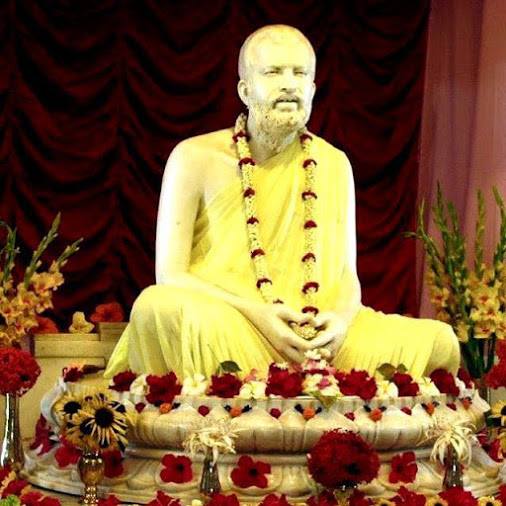WOMEN OF INDIA - 15.
SRI SARADA DEVI
(Delivered at the Shakespeare Club House, in Pasadena, California, on January 18, 1900)
For Recap -Read Part-1, 2, 3,4, 5, 6, 7, 8, 9, 10, 11, 12, 13 & 14.
THE LECTURE :- Part-15.
Now, there you are. Among the lower classes the number of men is larger than the number of women; and what would you naturally expect? A woman gets more chances of marriage, the number of men being larger.
Relative to such questions as to widows not marrying: among the first two castes, the number of women is disproportionately large, and here is a dilemma. Either you have a non-marriageable widow problem and misery, or the non-husband-getting young lady problem. To face the widow problem, or the old maid problem?
There you are; either of the two. Now, go back again to the idea that the Indian mind is socialistic. It says, "Now look here! we take the widow problem as the lesser one." Why? "Because they have had their chance; they have been married. If they have lost their chance, at any rate they have had one. Sit down, be quiet, and consider these poor girls-they have not had one chance of marriage."
Lord bless you! I remember once in Oxford Street, it was after ten o'clock, and all those ladies coming there, hundreds and thousands of them shopping; and some man, an American, looks around, and he says, "My Lord! how many of them will ever get husbands, I wonder!" So the Indian mind said to the widows, "Well, you have had your chance, and now we are very, very sorry that such mishaps have come to you, but we cannot help it; others are waiting."
Then religion comes into the question; the Hindu religion comes in as a comfort. For, mind you, our religion teaches that marriage is something bad, it is only for the weak. The very spiritual man or woman would not marry at all. So the religious woman says, "Well, the Lord has given me a better chance. What is the use of marrying? Thank God, worship God, what is the use of my loving man?" Of course, all of them cannot put their mind on God. Some find it simply impossible. They have to suffer; but the other poor people, they should not suffer for them. Now I leave this to your judgment; but that is their idea in India.
Next we come to woman as daughter. The great difficulty in the Indian household is the daughter. The daughter and caste combined ruin the poor Hindu, because, you see, she must marry in the same caste, and even inside the caste exactly in the same order; and so the poor man sometimes has to make himself a beggar to get his daughter married. The father of the boy demands a very high price for his son, and this poor man sometimes has to sell everything just to get a husband for his daughter.
The great difficulty of the Hindu's life is the daughter. And, curiously enough, the word daughter in Sanskrit is "duhitâ". The real derivation is that, in ancient times, the daughter of the family was accustomed to milk the cows, and so the word "duhita" comes from "duh", to milk; and the word "daughter" really means a milkmaid. Later on, they found a new meaning to that word "duhita", the milkmaid — she who milks away all the milk of the family. That is the second meaning.
Swami Vivekananda
To be continued ...





Comments
Post a Comment